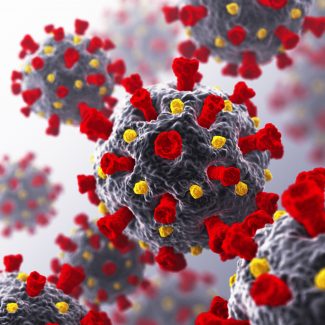On April 21st, 2020, CanPath announced the launch of its COVID-19 Initiative in support of national COVID-19 related research activities.
As Canada’s largest population health study, CanPath responded quickly to the pandemic by leveraging its existing infrastructure to support four key aims:
- Determine population-level prevalence of COVID-19 in Canada;
- Determine biological, societal and behavioural factors that affect susceptibility to COVID-19;
- Capture the socio-economic, mental health and long-term health outcomes of COVID-19;
- Capture biospecimens to enable population-level serological surveillance.
COVID-19 Antibody Study
CanPath and its regional cohorts are conducting two seroprevalence studies launched in January 2021. Both studies collect dried blood spots using kits mailed to participants, which are then tested for infection-acquired antibodies and vaccine-induced antibodies. Both studies also include a supporting online questionnaire which captures who has been vaccinated, the date of vaccination, vaccine type, and much more.
The CIHR-funded study is testing 3,000 randomly selected CanPath participants at three time points (500 per regional cohort). This study will also develop capacity for immunogenomics through blood collection from 4,000 participants from the Ontario Health Study, Alberta’s Tomorrow Project and clinical partnerships.
The COVID-19 Immunity Task Force-funded study is testing 20,000 targeted CanPath participants, including populations that are traditionally not included in studies or are among the highest risk of exposure to COVID-19, such as residents of long-term care homes and people living in under-served urban and rural communities with high prevalence of COVID-19.
- 22,130Dried blood spot samples received
- 24,250Questionnaires completed
CanPath COVID-19 Questionnaire
Working alongside national and global partners, CanPath developed a COVID-19 specific questionnaire that was distributed to all participants across Canada. This data collection initiative helped to measure the spread and severity of COVID-19 in communities across Canada.
Data collected through the COVID-19 Questionnaire are now available to researchers. Analysis of the COVID-19 data collected can be supported by CanPath’s existing cohort data and linkages to administrative health databases. To request access to the data, view CanPath’s Access Process here.
The CanPath COVID-19 Questionnaire was distributed by all six of our regional Canadian cohorts: BC Generations Project, Alberta’s Tomorrow Project, Manitoba Tomorrow Project, Ontario Health Study, CARTaGENE (Quebec), and the Atlantic Partnership for Tomorrow’s Health.
Information collected by the CanPath COVID-19 Questionnaire includes:
- COVID-19 test results/suspected infection
- Symptoms experienced (if any)
- Participant hospitalized or received medical care
- Current health status and risk factors
- Potential source of exposure
- Impact of pandemic on job status
- Impact of pandemic on mental, emotional, social and financial well-being
*Please note that while ethnicity/race data was not collected through this questionnaire, self-reported ethnicity data was collected at baseline for all CanPath participants. This data is available for all participants who completed the COVID-19 questionnaire and can support important analyses of the effect of the pandemic on Canadian BIPOC.
- 101,595Questionnaires submitted
SUPPORT-Canada Initiative
CanPath was awarded $2.6 million by the Canadian Institutes of Health Research (CIHR) and Canada’s COVID-19 Immunity Task Force for its SUPPORT-Canada Initiative. The initiative, titled SUrveying Prospective Population cOhorts for COVID-19 pRevalence and ouTcomes in Canada (SUPPORT-Canada), aims to capture data and biospecimens to enable population-level surveillance of COVID-19.
SUPPORT-Canada is built out from CanPath, Canada’s largest population cohort, in partnership with the Toronto-based University Health Network (UHN), along with support from numerous research platforms, industry collaborators and service providers.
By working with population cohorts, patient cohorts and healthcare worker cohorts, SUPPORT-Canada aims to:
- Collect population and clinical-level COVID-19 data and outcomes from over 400,000 Canadians to support personalized risk profiling, and inform adaptive social and public health responses;
- Create capacity for world-leading research in immunophenotyping, seroprevalence and host-viral genetics;
- Explore the role that genetics, co-morbidities and the environment play in shaping the pathophysiology of COVID-19 severity, susceptibility and immunological response.
COVID-19 Host Genetics Initiative
CanPath is a member of the COVID-19 Host Genetics Initiative. This initiative brings together the human genetics community to generate, share and analyze data to learn the genetic determinants of COVID-19 susceptibility, severity and outcomes.
195 contributing studies from around the world are seeking to:
- Provide an environment to foster the sharing of resources to facilitate COVID-19 host genetics research (e.g. protocols, questionnaires);
- Organize analytical activities across studies to identify genetic determinants of COVID-19 susceptibility and severity;
- Provide a platform to share the results from meta-analytical activities to benefit the broader scientific community.
Clonal Hematopoiesis Subgroup
Dr. Philip Awadalla, National Scientific Director of CanPath, is leading the COVID-19 Host Genetics Initiative’s Clonal Hematopoiesis project, alongside Dr. Pradeep Natarajan and Dr. Kelly Bolton.
The presence of pre-existing cardiovascular and lung disease are known to be associated with severe cases of COVID-19. Beyond medical comorbidities, age is a strong independent predictor of COVID-19 severity and may be related to age-related changes in inflammatory cells. Clonal Hematopoiesis (CH), the age-related accumulation of somatic mutations in blood, is known to alter the inflammatory profile of healthy individuals and may, in part, be a mediator of its ill-effects including cardiovascular disease and might be a critical determinant in predicting COVID-19 susceptibility and risk of adverse outcomes.
However, whether CH predisposes to severe COVID-19 or affects the complications of COVID-19 is unknown. In this Subgroup, a team of investigators are seeking to understand the role that CH might play in influencing COVID-19 severity and how acute infection with SARS-CoV-2 might in turn promote clonal expansions in blood and lead to long-term adverse health outcomes.
Project Objectives:
- Share resources and experience to facilitate COVID-19 Clonal Hematopoiesis research;
- Organize and coordinate COVID-19 Clonal Hematopoiesis analytical studies participating in the COVID-19 Host Genetics Initiative;
- Provide a platform to share research findings.
PREPARE-Canada Initiative
CanPath was awarded $1.1 million by the Canadian Institutes of Health Research (CIHR) for its PREPARE-Canada Initiative. The initiative, titled Preparing for the Recovery from the Effects of the PAndemic on cancer control using Real-world Evidence in Canada (PREPARE-Canada), aims to capture how COVID-19 has impacted cancer outcomes at the population level.
PREPARE-Canada aims to:
- Determine the effect of COVID-19 on cancer screening and diagnostic assessments, including the impact on cancer outcomes, in Canada;
- Investigate the impact of SARS-CoV-2 infection in shaping the pathophysiology of cancer risk; and
- Construct models to capture the long-term impact of COVID-19 on cancer burden in Canada.


